
28.10.2025
How to Stay Ahead of Regulatory Expectations
Preparing for a U.S. FDA inspection, EMA audit, or any other regulatory review isn’t just another box to check. It’s a strategic lever for accelerating approval timelines, reducing risk, and safeguarding your product’s credibility. In the life sciences, where delays can cost millions and stall lifesaving treatments, being truly inspection ready is a business imperative. […]
Read more 


17.08.2025
Editorial – The A.I. Issue
Let me start with the obvious. AI has dominated the conversation for the last three years, and as the editor that creates a real dilemma. When everything is labeled AI, an AI issue can feel predictable before you turn the first page. I did not want that. I wanted this issue to be useful and […]
Read more 

17.08.2025
From Code to Clinic: Navigating the Human-Machine-Doctor Triangle in AI-Driven Medicine
Exploring Challenges and Approaches for Ethical and Effective AI in Healthcare The rapid growth of health data from electronic health records, genomics, and wearable devices has created unprecedented opportunities in medicine. Artificial Intelligence is increasingly viewed not merely as a support tool but as a cornerstone for future diagnostics and personalized treatments. This shift, while […]
Read more 



16.08.2025
From training data to training people
Let’s do something a properly trained writing AI probably would not do: Start with an I statement. I get the feeling that each time ADRES reaches out to me about possibly contributing an article to the BioStartup Standard, it turns into me writing about parts of my personal journey in the biotech space. It is […]
Read more 

16.08.2025
Harnessing Nature and Nurture: How SpotitEarly’s Bio-AI Hybrid Platform Redefines Early Cancer Detection
The frontier of medical diagnostics is rapidly evolving, driven by the convergence of diverse scientific disciplines. In this exciting landscape, where biology meets artificial intelligence, a revolutionary approach to early cancer detection is emerging. SpotitEarly is pioneering a bio-AI hybrid platform that integrates the unparalleled olfactory capabilities of trained detection canines with advanced Deep Learning […]
Read more 



16.08.2025
Operational Intelligence: How AI is Rewriting the Playbook for Supply Chains in MedTech and Biotech Startups
In the race to bring innovative medical products to market, startups in biotech and medtech face a paradox: they must move fast while navigating some of the most regulated, complex, and risk-sensitive environments in the business world. Traditional operational approaches are buckling under the weight of this dual pressure. Enter Artificial Intelligence, not as a […]
Read more 

16.08.2025
Current Limitations of AI in Regulatory Writing and Assessments for Drug and Device Development
Artificial Intelligence (AI) has made remarkable progress in recent years, offering promising tools to streamline documentation, accelerate data analysis, and support planning as well as strategic and regulatory decision-making across the product development lifecycle. However, when applied to regulatory writing and scientific interpretation, especially in the preparation of regulatory development plans and formal submissions such […]
Read more 



16.08.2025
Use of digital twins in clinical trials: Twin to win?
The advent of new technology always ushers increasingly complex developments in the ever-evolving landscape of drug development. The uptake of Artificial Intelligence (AI) technologies has been ubiquitous in all areas of drug development, including clinical research where digital health solutions are being employed to increase clinical trial efficiency and decrease the associated time and costs. […]
Read more 

16.08.2025
AI as a Medical Device: How to get EU Approval
Placing an AI-powered medical device on the EU market requires complex strategies and a high level of both technical and regulatory expertise. This even gets trickier for Software as a Medical Device (SaMD) powered by Artificial Intelligence (AI). Choosing the Right Notified Body Notified Bodies are responsible for evaluating medical devices in accordance with EU […]
Read more 



16.08.2025
What Clinical Trial Sponsors Must Know Before Using AI Tools: Data Protection and Global Regulatory Perspectives
Artificial intelligence is becoming an essential component of modern clinical trials. It supports patient recruitment, accelerates data analysis, enables adaptive trial designs, and contributes to regulatory decision-making. As sponsors adopt AI systems across various stages of the research lifecycle, they must address the legal and ethical frameworks that govern the use of personal data and […]
Read more 

16.08.2025
AI and Organoids in Drug Development: Scientific Promise and Regulatory Transitions
The convergence of artificial intelligence (AI) and organoid technologies is beginning to reconfigure the early stages of drug development. These two innovation domains, each advancing rapidly on their own, are now intersecting in ways that promise to improve the predictive value of preclinical testing, reduce the cost and duration of development pipelines, and ultimately produce […]
Read more 



16.08.2025
Beyond Generic AI: How Domain Expertise Creates Breakthrough Tools for Pharmaceutical Operations
From Environmental Monitoring to Documentation Intelligence A biologics manufacturer was preparing for a critical FDA pre-approval inspection. Their regulatory team faced months of manual document review to identify potential compliance gaps across thousands of SOPs, validation reports, and quality records. Instead, they deployed an SME-guided AI system that analyzed their entire quality management system in […]
Read more 

15.08.2025
AI in Clinical Trials: From Promise to Practice
The clinical trial landscape is undergoing a profound transformation, with artificial intelligence (AI) at its core. No longer a futuristic concept, AI has become a practical and applied force, reshaping every phase of clinical research. This article explores a selection of AI-driven technologies already in active use and how they are redefining drug and device […]
Read more 



15.08.2025
Clear, Clinically Validated Communication: Transforming Patient Care
The First 60 Minutes after Diagnosis Often Dictate the Next Six Months of a Patient’s Care. Maya felt the room tilt when the rheumatologist finally named it, systemic lupus erythematosus. Stunned, she kept nodding, promising she got it, even as the explanations dissolved into static. She clutched the bulky discharge packet, telling herself that at […]
Read more 

15.08.2025
Nature’s Blueprint: How 3D Protein Modeling is Powering the Next Wave of Human – like Nutraceuticals
Finding Human Proteins in Nature The next generation of nutraceuticals is built on a simple but profound insight: nature already holds the key to bifunctionality, with naturally occurring proteins with the potential to affect real change in the human body. The challenge is to find them. At Maolac, our proprietary AI platform combines massive data […]
Read more 



21.04.2025
MIRROR BIOLOGICS CREATING A NEW CLASS OF IMMUNOTHERAPY
Mirror Biologics, Inc. (“Mirror”) was born in Jerusalem and currently operates as a Delaware corporation headquartered in Tampa, Florida with a wholly-owned GMP aseptic manufacturing subsidiary in Jerusalem. Mirror is pioneering novel immunotherapy approaches for treating metastatic cancer and reversing the decline in cellular immune function that occurs as we age. These novel approaches are […]
Read more 

06.02.2025
Understanding U.S. Market Access: A Foundation for Patient-Centric Success
U.S. Market Access is the pathway by which innovative healthcare solutions reach patients, ensuring they receive and benefit from these interventions while navigating health insurance (payer) systems, regulatory requirements, and economic considerations. Market access involves a comprehensive approach to address reimbursement, evidence generation, stakeholder engagement, and payer strategies, all aimed at delivering equitable and affordable […]
Read more 



06.02.2025
USA Issue Crossword
Read more 

06.02.2025
INTERACT vs. Pre-IND Meetings: Navigating Early FDA Pathways for Biopharma Startups
In the United States, the Food and Drug Administration (FDA) offers two pivotal early-stage meetings for biopharmaceutical companies: the Initial Targeted Engagement for Regulatory Advice on CBER/CDER Products (INTERACT) meeting and the Pre-Investigational New Drug (Pre-IND) meeting. Each serves distinct purposes within the drug development process, and understanding their differences is crucial for startups aiming […]
Read more 



06.02.2025
Navigating U.S. State Privacy Laws in Clinical Research: Exemptions and Applicability
The landscape of data privacy is shifting rapidly in the United States, with numerous states enacting comprehensive privacy laws aimed at protecting consumer data. These laws, such as the California Consumer Privacy Act (CCPA) and Virginia Consumer Data Protection Act (VCDPA), are reshaping how organizations process personal data. However, for the pharmaceutical and clinical research […]
Read more 

06.02.2025
Regulatory and Other Considerations in the Development of Digital Therapeutics
You are an innovator who sees a healthcare problem that can be addressed, in whole or part, by digital technology (a software-enabled device delivering feedback and improvement in user feel, function, or other metrics). One of the earliest determinations you need to make is whether your product will be a consumer-facing or a regulated product, […]
Read more 



06.02.2025
Digital Health: Law and Regulation as Part of Your Business Strategy
Considering legal and regulatory aspects early in product development is crucial for streamlining time-to-market and enhancing business strategy. Legal issues can become obstacles during due diligence or serve as valuable assets for investors. Proper planning avoids delays, facilitates a robust business model, and aligns with long-term goals. Why Regulation is Critical for Business Strategy: In […]
Read more 

06.02.2025
Orphan Designation
An “orphan designation” is granted by the US Food and Drug Administration (FDA) and the European Medicines Agency (EMA) for a drug/biologic to create financial incentives for developing therapies for rare diseases. This article focuses on the FDA orphan designation program in respect to the incentives offered, the prevalence that defines an orphan disease, as well as […]
Read more 



06.02.2025
Important Update for Laboratories Offering Laboratory Developed Tests (LDTs): Time to Prepare for New FDA Regulations!
In May 2024, the FDA finalized a rule that will bring significant changes to the regulation of Laboratory Developed Tests (LDTs)*, marking an end to decades of enforcement discretion. Under this new framework, laboratories that manufacture nonexempt LDTs will be required to comply with medical device regulations, phased in gradually over the next four years. […]
Read more 

06.02.2025
Coming to America
While watching this movie might not be very helpful to a medical device company that wants to launch its product in the US, it will make you laugh. However, there are some truths in the movie that are worth noting. Coming to America with little preparation and knowledge can wind up in some precarious situations. […]
Read more 



06.02.2025
The effects of the new Trump administration on biotech
In January 2025 Donald Trump was sworn as the next US President for the 2nd time. We are looking closely to check how it will affect the U.S. biotech market as it could experience both opportunities and challenges, influenced by his administration’s policies and priorities. Our analysis provides a balanced perspective on potential scenarios that […]
Read more 

06.02.2025
Building a Strong Marketing and Communications Infrastructure for Startups
Startups, especially in the health tech sector, face an ever-evolving challenge: continuously attracting investors while engaging partners, customers, and stakeholders. To succeed, they need a marketing and communications infrastructure built on two foundational pillars: a well-defined communications strategy and exclusive branding. The Communications Strategy Grounded in Business and Differentiation “Storytelling is the most important skill a […]
Read more 



13.10.2024
Navigating Regulatory Differences: The Role of Qualified Persons in Israel and the EU
In the global landscape of clinical trials, regulatory frameworks vary significantly from one region to another. One of the most critical aspects of these frameworks is the role of the Qualified Person (QP), a function that is mandatory in the European Union but differs considerably in other regions, such as Israel. Understanding these differences is […]
Read more 

13.10.2024
Portugal is more than sun, good beach, food, and vacations.
Portugal is mostly seen abroad as a country of good food, beautiful beaches and wonderful to spend some sunny days, but for Biotech and pharmaceutical companies, especially those that are dedicate to rare diseases, there are good opportunities. Why must Biotech invest in Portugal? The rare disease market in Portugal is quite “young,” starting almost […]
Read more 



13.10.2024
5 Unique Attributes Powering Europe’s Bio-Startup Revolution: Unlocking Opportunities for Growth and Innovation
Unlock Europe’s biotech revolution! In this exclusive piece, David Brühlmann, Managing Director of Brühlmann Consulting and Host of the Smart Biotech Scientist Podcast, reveals five key drivers transforming the European bio-startup landscape. From ancient academic powerhouses to cutting-edge funding models, discover how Europe’s unique ecosystem is reshaping biotech’s future. Whether you’re a scientist, startup entrepreneur, […]
Read more 

13.10.2024
Harmonizing Regulatory and Reimbursement Strategies: Navigating EU and US Market Access for Medical Devices and Pharmaceuticals
Navigating the regulatory landscape for medical devices and pharmaceuticals is a complex endeavor for startups aiming to enter both the EU and US markets. While securing approval from the European Medicines Agency (EMA) or, for medical devices, compliance with the Medical Device Regulation (MDR), is often seen as an initial step, it is crucial to […]
Read more 



13.10.2024
To CDISC or not to CDISC? or: a time and place for everything.
The Clinical Data Interchange Standards Consortium (CDISC) is a non-profit organisation devoted to the development data standards for use in broader medical and especially in clinical research. Both the US FDA and the Japanese PMDA require the use of specific CDISC standards in submissions, but notably the EMA in Europe does not have equivalent requirements. […]
Read more 

01.09.2024
Reflections on Working with the EMA: A Personal Journey Through the European Regulatory Affairs Landscape
In 1995, I attended a conference in Paris where a significant announcement was made—the establishment of the European Medicines Agency (EMA). At the time, the vision was ambitious: within three years, all medicinal products would be approved through a centralized procedure, streamlining the process across Europe. Nearly three decades later, while this vision remains only […]
Read more 

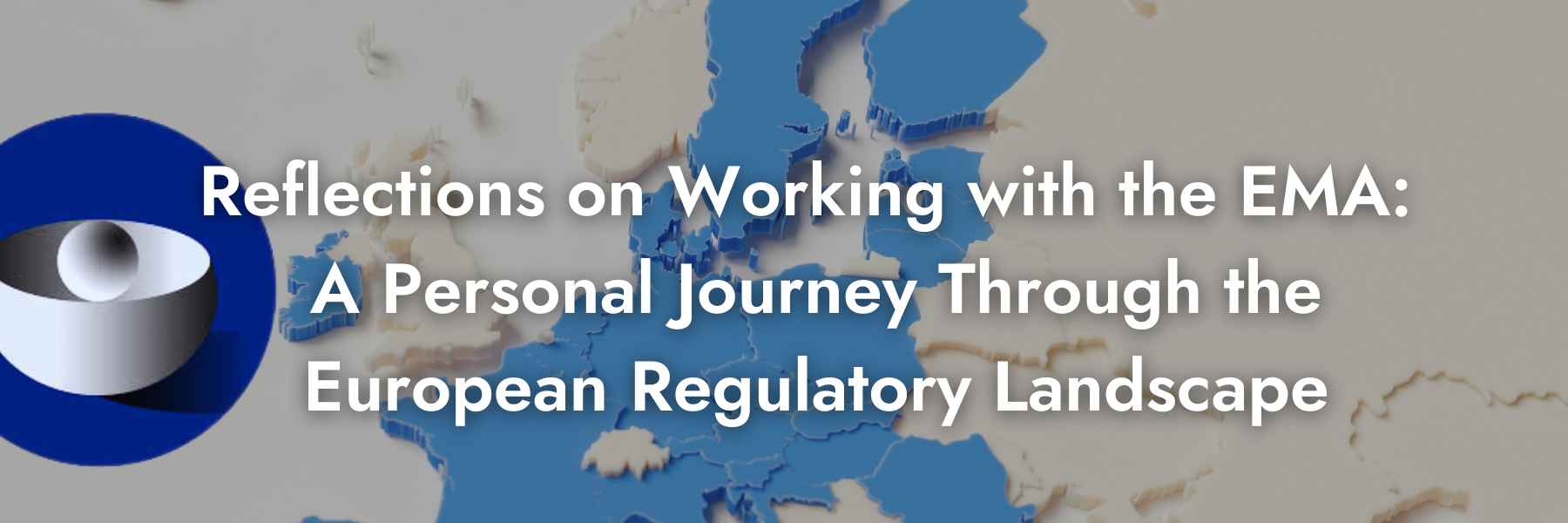

01.09.2024
Orphan Designation
An “orphan designation” is granted by the US Food and Drug Administration (FDA) and the European Medicines Agency (EMA) for a drug/biologic to create financial incentives for developing therapies for rare diseases. This article focuses on incentives offered, the prevalence that defines an orphan disease, as well as the procedural process of obtaining the designations. Introduction A […]
Read more 

01.09.2024
Navigating the Clinical Supply Chain for Clinical Trials in the EU
At IMP Clinical Supply Services Ltd., we are privileged to oversee a crucial aspect of the clinical trial process: the clinical supply chain. The European market presents a unique set of challenges and opportunities for bio-startups, particularly in the realm of clinical trials. Understanding and navigating these complexities is essential for any company looking to […]
Read more 

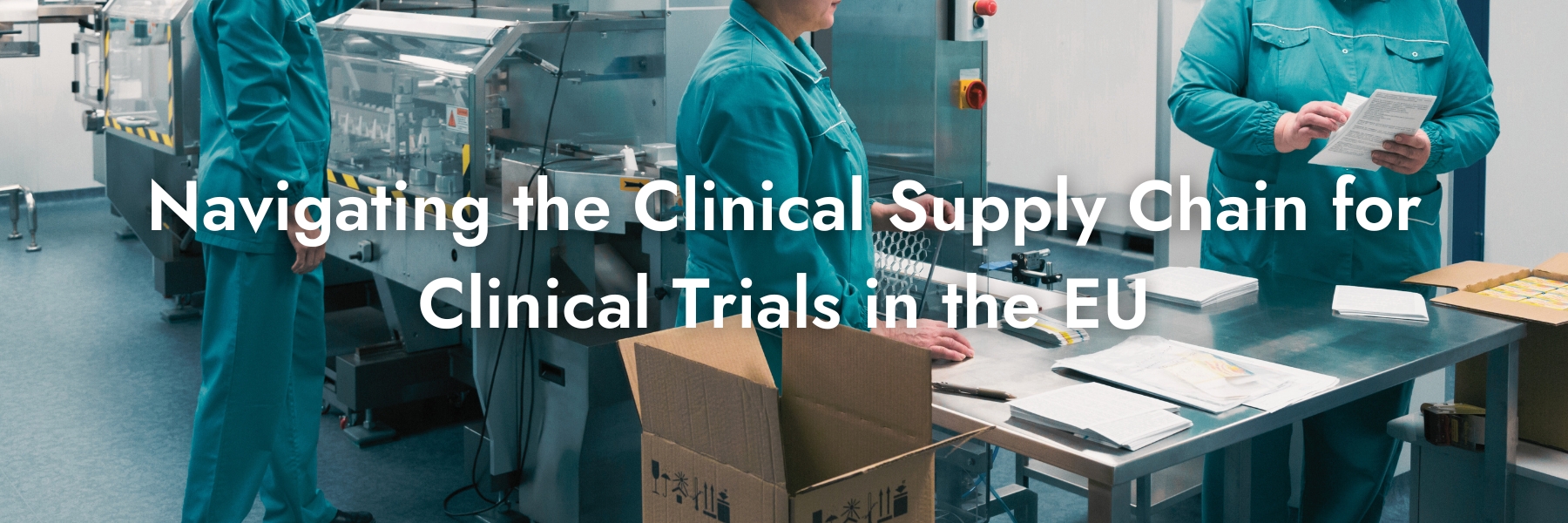
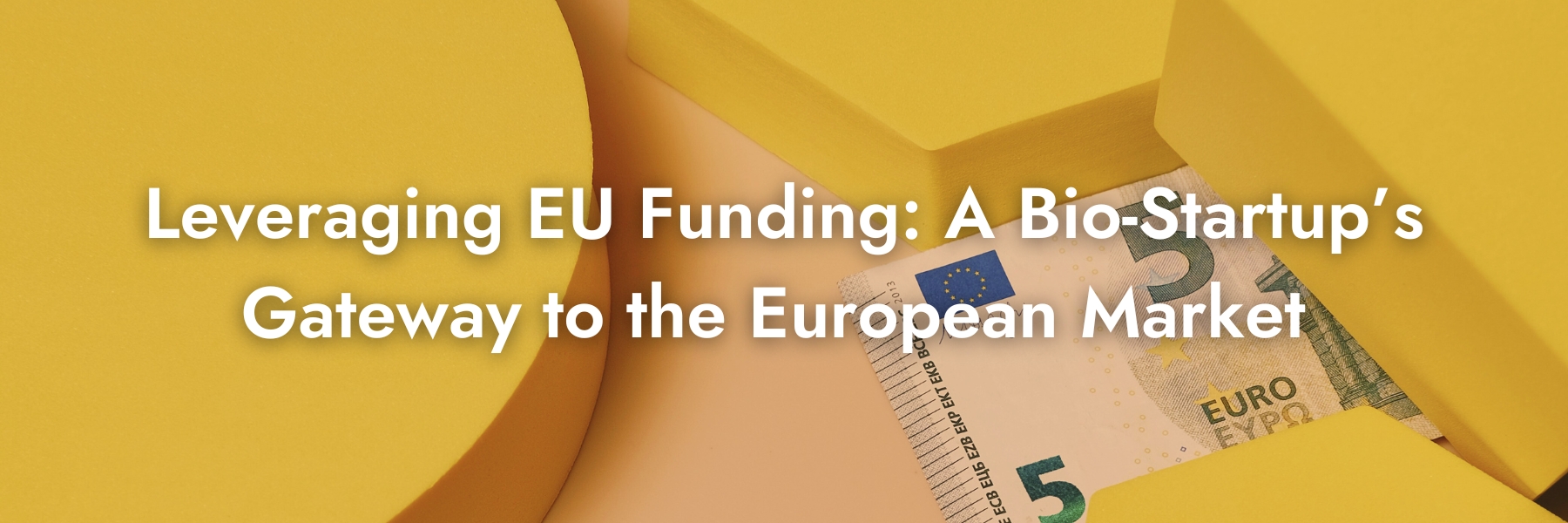
01.09.2024
Leveraging EU Funding: A Bio-Startup’s Gateway to the European Market
In the competitive and innovation-driven pharmaceutical industry, accessing the European market can be both a challenge and an opportunity for bio-startups. European Union (EU) non-dilutive funding offers vital support to startups aiming to navigate this complex environment, providing the financial and strategic resources needed to bring innovative solutions tothe market. The Power of EU Funding […]
Read more 

01.09.2024
Why Biopharma Companies Must Prioritize GDPR Compliance for EEA and UK Clinical Trials
In the dynamic and highly regulated landscape of biopharmaceuticals, compliance with international regulations is crucial for maintaining operational integrity and securing future business opportunities. One critical regulation that biopharma companies worldwide must prioritize is the General Data Protection Regulation (GDPR) when conducting clinical trials in the European Economic Area (EEA) or the United Kingdom (UK). […]
Read more 


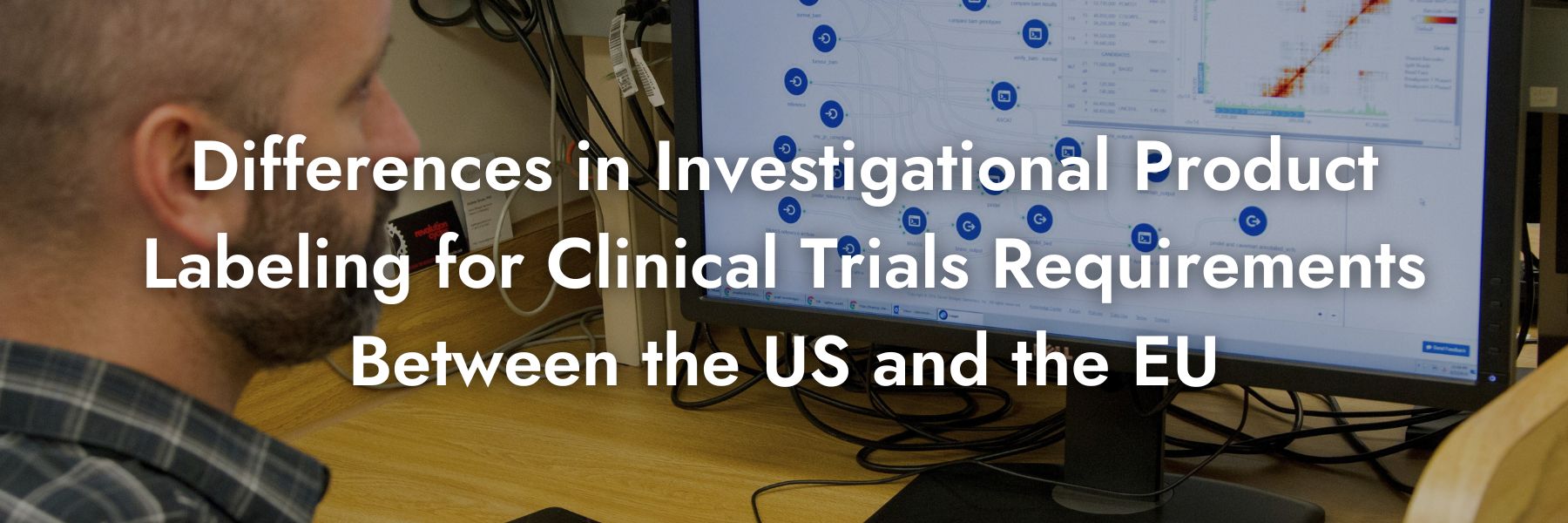
01.09.2024
Differences in Investigational Product Labeling for Clinical Trials Requirements Between the US and the EU
Investigational product (IP) labeling for clinical trials is a critical aspect of regulatory compliance and patient safety in both the United States (US) and the European Union (EU). While there are similarities in their respective requirements, several key differences exist that sponsors and clinical trial managers must understand and navigate effectively. Regulatory Framework In the […]
Read more 

01.09.2024
Navigating Quality Guidelines for Biological Investigational Medicinal Products: A Comparative Analysis of EMA and ICH Q7 Standards
Good Manufacturing Practices (GMP) are outlined in several guidelines. For commercial Active Pharmaceutical Ingredients (APIs), the primary reference is ICH Q7 (Good Manufacturing Practice Guide for Active Pharmaceutical Ingredients). However, when manufacturing biological products during clinical studies in the EU, the quality requirements detailed in ICH Q7 may be overly stringent. It is advisable to […]
Read more 


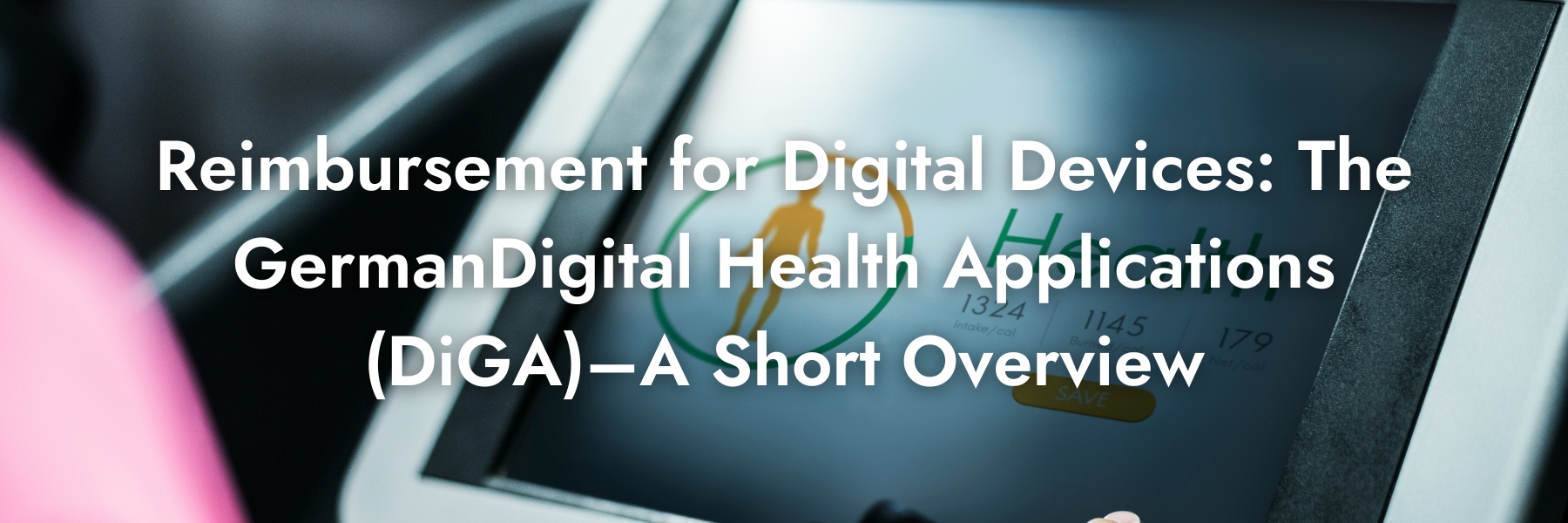
01.09.2024
Reimbursement for Digital Devices: The GermanDigital Health Applications (DiGA)–A Short Overview
Uniquely in Europe, Germany offers a pathway for certified digital health applications of risk class I or IIa according to MDR to be prescribed by medical doctors and the manufacturers are reimbursed by the statutory health insurance companies. Only digital health applications that are listed in the so called DiGA directory of the BfArM (Federal […]
Read more 

01.09.2024
Navigating Second Medical Uses: Chemical Solutions with a Mechanical Cause
The European Patent Office issued a decision which could allow a broader range of claimed innovations to benefit from the so-called “second medical use” exception of Article 54(5) of the European Patent Convention (EPC). Such an exception is limited to a “substance or composition” only and is thus not available for medical devices. Historically, compounds […]
Read more 

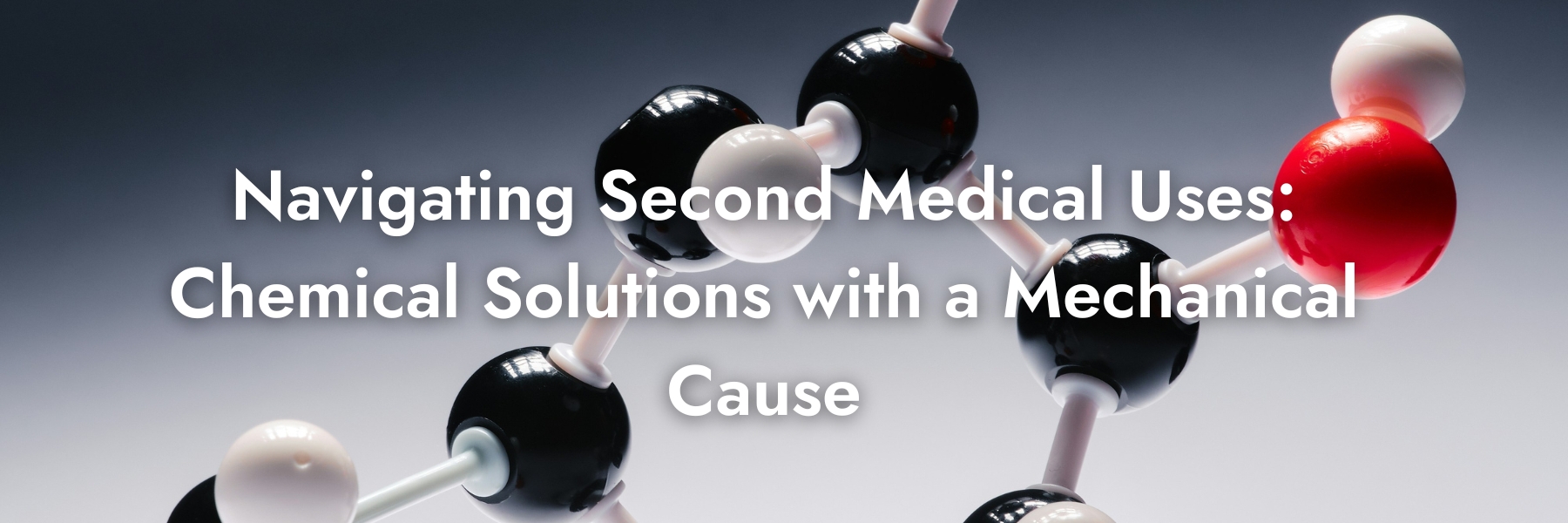

01.09.2024
Cracking the Swiss Market: Essential HR and Legal Strategies for Long-Term Success
In 2023, loads of new companies popped up worldwide, for instance, around 600k in Germany and 52k in Switzerland alone. But here’s the kicker: about 75% of these won’t be around in five years. Why? It’s a mix of many reasons, such as cultural issues, employment challenges, lack of ambition, and inflexibility in changing their […]
Read more 

01.09.2024
Navigating the EMA’s SME Initiative: A Strategic Advantage for Biopharma and MedTech Startups
The European Medicines Agency (EMA) is a cornerstone in the regulation of medicines across the European Union (EU). Recognizing the unique challenges faced by small and medium-sized enterprises (SMEs) in the biopharma and MedTech sectors, the EMA has established a dedicated SME initiative. This program is designed to support innovation by simplifying regulatory processes and […]
Read more 



01.09.2024
Clinical adoption of AI-based products in lung cancer screening: barriers to market entry, and a comparative, multi-center, cross-European study.
Lung Cancer is the second most common type of cancer and the number one cause of cancer death. The majority of patients diagnosed with lung cancer are already in the late stages and, therefore, have a poor prognosis with a five-year survival rate of only 10–20%. Diagnosing lung cancer at an early stage, before the […]
Read more 

01.09.2024
Navigating the European Bio-Startup Ecosystem: A Founder’sGuide
The European bio-startup scene is a mosaic of invention, challenge, and opportunity where entrepreneurial spirit meets modern science in settings buzzing with activity. Over $54 billion financed over 1,936 deals in just the first half of 2024 indicates a startling 102% year-over-year rise.1 At the core of this ecosystem are energetic innovation hubs, notably in the […]
Read more 

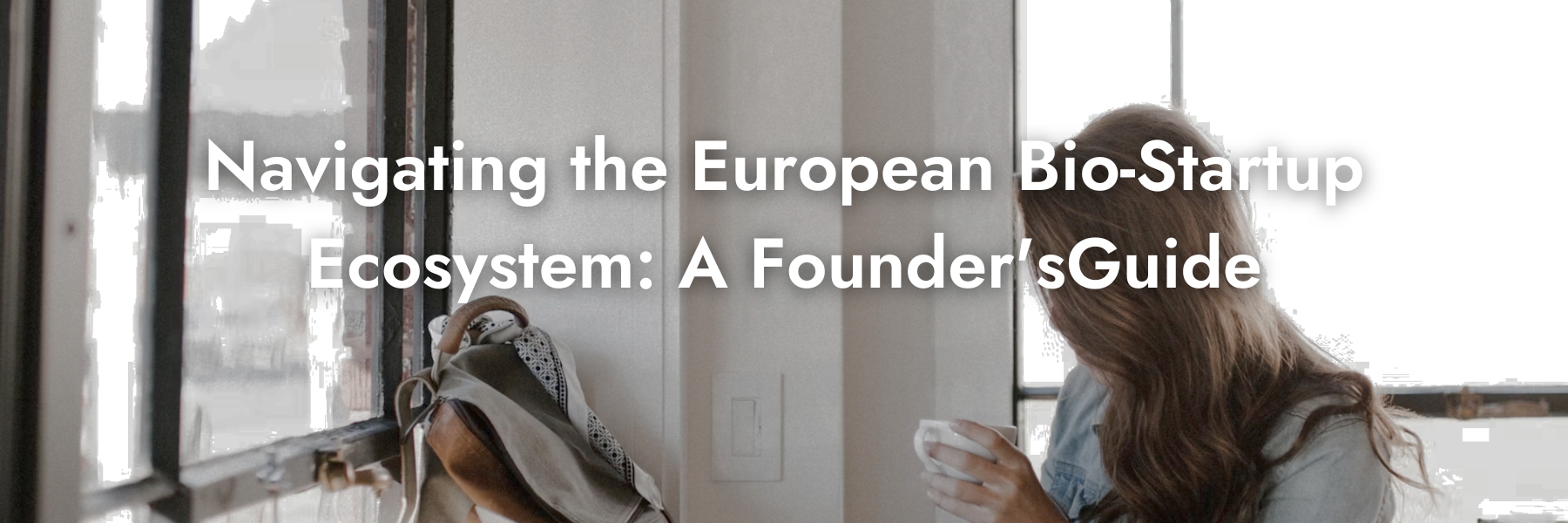
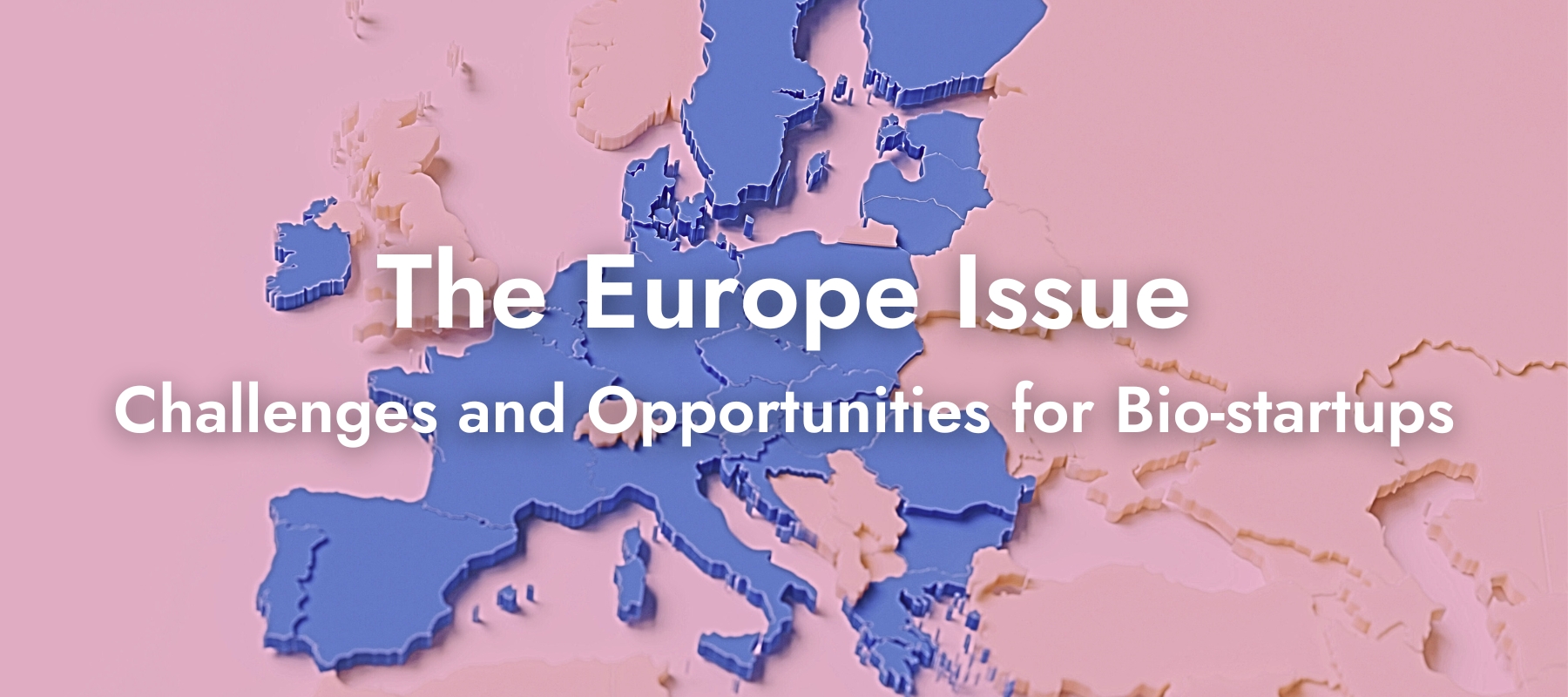
01.09.2024
The Europe Issue: Challenges and Opportunities for Bio-startups
Welcome to the second issue of our online magazine, where we explore the dynamic and diverse landscape of European biotech and healthcare innovation. Our goal in this edition is to equip you with a foundational understanding of the European biosciences ecosystem, while also offering a wide range of perspectives and strategic insights that can help […]
Read more 

28.05.2024
The Bio-Startup Standard Crosswords
Read more 



28.05.2024
The Tech Transfer Issue: Bridging Innovation and Industry
In the pharmaceutical world, Technology transfer (TT) is part of the product’s lifecycle. TT refers to the process of transferring knowledge, technologies, and methodologies from one institute or facility to another. This broad definition encompasses various activities, from moving academic discoveries to the commercial sector to sharing innovations between different companies or research facilities. In […]
Read more 

28.05.2024
The Founder’s Perspective: Building Trust and Identifying Gaps for Successful Technology Transfer
From my experience as a biotech startup founder, the technology transfer (TT) process involves due diligence and relationship building with the principal investigator (PI) and lab members, the Tech Transfer Office (TTO), Or an incubator’s management team. Most times, things don’t go as smoothly as expected, and this article will focus on what can be […]
Read more 



28.05.2024
Technology Transfer Companies: Turning Academic Research into Tangible Solutions and Startup Companies
Technology transfer companies play a crucial role in translating groundbreaking research into practical solutions that benefit society. They serve as bridges between academia and industry, facilitating the transformation of theoretical discoveries into marketable products and services. Ramot, established in 1973a subsidiary of Tel Aviv University Ltd. is the Tech-Transfer company of Tel Aviv University, responsible […]
Read more 

28.05.2024
Assessing the Market Need for a New Idea in Healthcare
In the ever-evolving field of healthcare, bringing a new idea to fruition involves a meticulous understanding of the market need. Whether it’s a new drug, a revolutionary medical device, a healthcare app, or a unique service model, the success of such innovation hinges on its relevance and demand within the healthcare market. Here’s a structured […]
Read more 

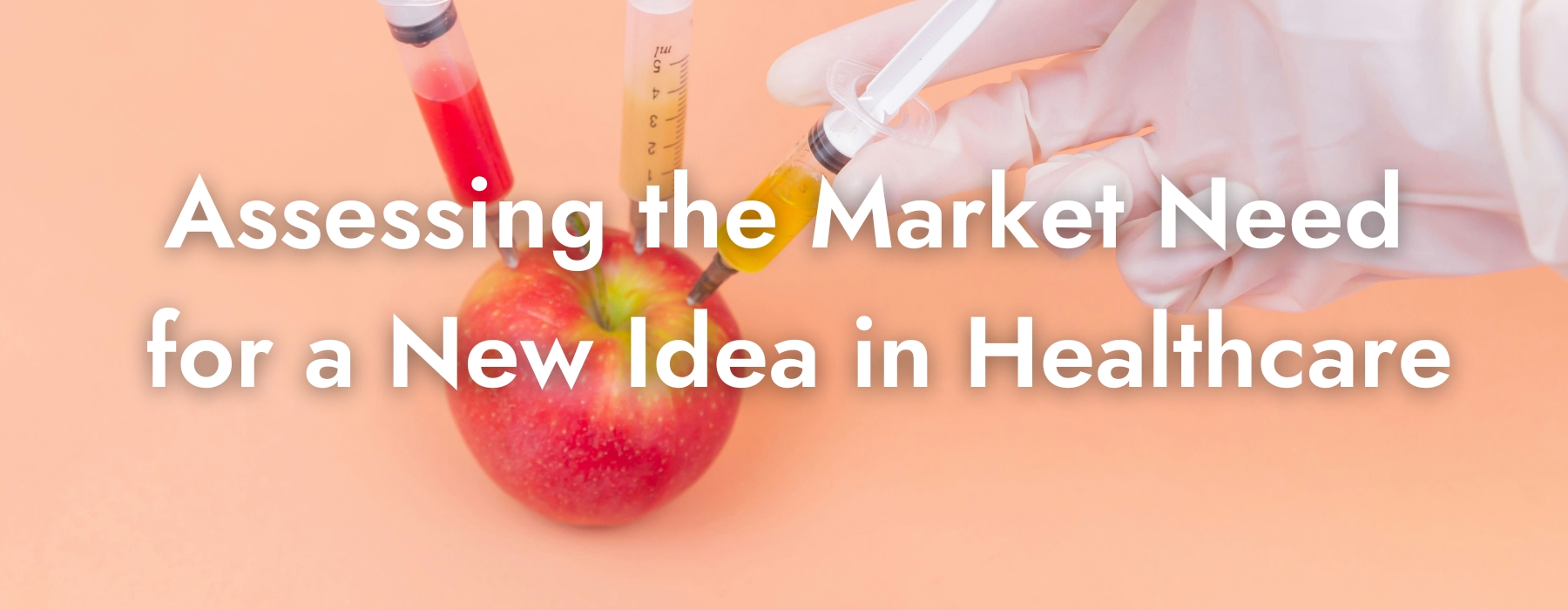

28.05.2024
Early Market Access Planning for Successful Commercialization of Healthcare Innovations in the USA
There are many considerations to account for, both prior to and during the development of any new healthcare solution or innovation. Proactive steps such as performing market research, assessing competitors, and developing a strategy to comply with country-specific regulatory requirements are very important and well-established. If the strategic plans for your offering include making your […]
Read more 

28.05.2024
Unlocking EU Funding for Pharma Startups and Tech Transfer
The pharmaceutical industry is at the forefront of the European Union’s efforts to drive innovation and technological leadership. A staggering 25% of pharmaceutical startups emerge from technological transfer, the process of transforming cutting-edge research into commercially viable products and services. By bridging academia and industry, tech transfer catalyzes economic growth, job creation, and groundbreaking deep-tech […]
Read more 



28.05.2024
Technology Transfer Regulatory Requirements
The WHO guidelines define technology transfer as a logical procedure that controls the transfer of products, processes, and knowledge, together with their documentation and professional expertise, within a facility or between facilities. It may involve development, manufacturing, and testing sites. The transfer may occur during a product’s development phases or after obtaining marketing authorization. The […]
Read more 

28.05.2024
Streamlining Pharmaceutical Technology Transfer for Enhanced Drug Production
In the pharmaceutical industry, technology transfer is critical to ensuring that knowledge about product development and manufacturing processes is shared effectively across different phases and sites. Technology transfer aims to facilitate product realization by transferring essential process knowledge and control strategies between development and manufacturing teams and across manufacturing sites. Collaborative Foundations for Success The […]
Read more 



28.05.2024
Analytical Technology Transfer in the Pharma Industry
In the pharmaceutical industry, analytical technology transfer (ATT) is a crucial process that involves moving validated analytical methods from one laboratory to another. This is typically done between different locations within the same company or between different companies. The transfer ensures that the recipient laboratory can perform the analytical method reliably and consistently, producing results […]
Read more 

28.05.2024
Drug Licensing Vs. Apartment Rental
The Virtual-Tangible Fine Line Drafting a technology license agreement is a complex professional matter, typically handled by lawyers specializing exclusively in the field. Surprisingly, the principles and rules of an apartment rental agreement, a topic familiar to many, can assist in navigating and understanding the concepts of IP licensing. Below, we will review the overlapping […]
Read more 



17.08.2025
Editorial – The A.I. Issue
Let me start with the obvious. AI has dominated the conversation for the last three years, and as the editor that creates a real dilemma. When everything is labeled AI, an AI issue can feel predictable before you turn the first page. I did not want that. I wanted this issue to be useful and […]
Read more 


17.08.2025
From Code to Clinic: Navigating the Human-Machine-Doctor Triangle in AI-Driven Medicine
Exploring Challenges and Approaches for Ethical and Effective AI in Healthcare The rapid growth of health data from electronic health records, genomics, and wearable devices has created unprecedented opportunities in medicine. Artificial Intelligence is increasingly viewed not merely as a support tool but as a cornerstone for future diagnostics and personalized treatments. This shift, while […]
Read more 


16.08.2025
From training data to training people
Let’s do something a properly trained writing AI probably would not do: Start with an I statement. I get the feeling that each time ADRES reaches out to me about possibly contributing an article to the BioStartup Standard, it turns into me writing about parts of my personal journey in the biotech space. It is […]
Read more 


16.08.2025
Harnessing Nature and Nurture: How SpotitEarly’s Bio-AI Hybrid Platform Redefines Early Cancer Detection
The frontier of medical diagnostics is rapidly evolving, driven by the convergence of diverse scientific disciplines. In this exciting landscape, where biology meets artificial intelligence, a revolutionary approach to early cancer detection is emerging. SpotitEarly is pioneering a bio-AI hybrid platform that integrates the unparalleled olfactory capabilities of trained detection canines with advanced Deep Learning […]
Read more 


16.08.2025
Operational Intelligence: How AI is Rewriting the Playbook for Supply Chains in MedTech and Biotech Startups
In the race to bring innovative medical products to market, startups in biotech and medtech face a paradox: they must move fast while navigating some of the most regulated, complex, and risk-sensitive environments in the business world. Traditional operational approaches are buckling under the weight of this dual pressure. Enter Artificial Intelligence, not as a […]
Read more 


16.08.2025
Current Limitations of AI in Regulatory Writing and Assessments for Drug and Device Development
Artificial Intelligence (AI) has made remarkable progress in recent years, offering promising tools to streamline documentation, accelerate data analysis, and support planning as well as strategic and regulatory decision-making across the product development lifecycle. However, when applied to regulatory writing and scientific interpretation, especially in the preparation of regulatory development plans and formal submissions such […]
Read more 


16.08.2025
Use of digital twins in clinical trials: Twin to win?
The advent of new technology always ushers increasingly complex developments in the ever-evolving landscape of drug development. The uptake of Artificial Intelligence (AI) technologies has been ubiquitous in all areas of drug development, including clinical research where digital health solutions are being employed to increase clinical trial efficiency and decrease the associated time and costs. […]
Read more 


16.08.2025
AI as a Medical Device: How to get EU Approval
Placing an AI-powered medical device on the EU market requires complex strategies and a high level of both technical and regulatory expertise. This even gets trickier for Software as a Medical Device (SaMD) powered by Artificial Intelligence (AI). Choosing the Right Notified Body Notified Bodies are responsible for evaluating medical devices in accordance with EU […]
Read more 


16.08.2025
What Clinical Trial Sponsors Must Know Before Using AI Tools: Data Protection and Global Regulatory Perspectives
Artificial intelligence is becoming an essential component of modern clinical trials. It supports patient recruitment, accelerates data analysis, enables adaptive trial designs, and contributes to regulatory decision-making. As sponsors adopt AI systems across various stages of the research lifecycle, they must address the legal and ethical frameworks that govern the use of personal data and […]
Read more 


16.08.2025
AI and Organoids in Drug Development: Scientific Promise and Regulatory Transitions
The convergence of artificial intelligence (AI) and organoid technologies is beginning to reconfigure the early stages of drug development. These two innovation domains, each advancing rapidly on their own, are now intersecting in ways that promise to improve the predictive value of preclinical testing, reduce the cost and duration of development pipelines, and ultimately produce […]
Read more 


16.08.2025
Beyond Generic AI: How Domain Expertise Creates Breakthrough Tools for Pharmaceutical Operations
From Environmental Monitoring to Documentation Intelligence A biologics manufacturer was preparing for a critical FDA pre-approval inspection. Their regulatory team faced months of manual document review to identify potential compliance gaps across thousands of SOPs, validation reports, and quality records. Instead, they deployed an SME-guided AI system that analyzed their entire quality management system in […]
Read more 


15.08.2025
AI in Clinical Trials: From Promise to Practice
The clinical trial landscape is undergoing a profound transformation, with artificial intelligence (AI) at its core. No longer a futuristic concept, AI has become a practical and applied force, reshaping every phase of clinical research. This article explores a selection of AI-driven technologies already in active use and how they are redefining drug and device […]
Read more 


15.08.2025
Clear, Clinically Validated Communication: Transforming Patient Care
The First 60 Minutes after Diagnosis Often Dictate the Next Six Months of a Patient’s Care. Maya felt the room tilt when the rheumatologist finally named it, systemic lupus erythematosus. Stunned, she kept nodding, promising she got it, even as the explanations dissolved into static. She clutched the bulky discharge packet, telling herself that at […]
Read more 


15.08.2025
Nature’s Blueprint: How 3D Protein Modeling is Powering the Next Wave of Human – like Nutraceuticals
Finding Human Proteins in Nature The next generation of nutraceuticals is built on a simple but profound insight: nature already holds the key to bifunctionality, with naturally occurring proteins with the potential to affect real change in the human body. The challenge is to find them. At Maolac, our proprietary AI platform combines massive data […]
Read more 


21.04.2025
MIRROR BIOLOGICS CREATING A NEW CLASS OF IMMUNOTHERAPY
Mirror Biologics, Inc. (“Mirror”) was born in Jerusalem and currently operates as a Delaware corporation headquartered in Tampa, Florida with a wholly-owned GMP aseptic manufacturing subsidiary in Jerusalem. Mirror is pioneering novel immunotherapy approaches for treating metastatic cancer and reversing the decline in cellular immune function that occurs as we age. These novel approaches are […]
Read more 


06.02.2025
Understanding U.S. Market Access: A Foundation for Patient-Centric Success
U.S. Market Access is the pathway by which innovative healthcare solutions reach patients, ensuring they receive and benefit from these interventions while navigating health insurance (payer) systems, regulatory requirements, and economic considerations. Market access involves a comprehensive approach to address reimbursement, evidence generation, stakeholder engagement, and payer strategies, all aimed at delivering equitable and affordable […]
Read more 


06.02.2025
USA Issue Crossword
Read more 


06.02.2025
INTERACT vs. Pre-IND Meetings: Navigating Early FDA Pathways for Biopharma Startups
In the United States, the Food and Drug Administration (FDA) offers two pivotal early-stage meetings for biopharmaceutical companies: the Initial Targeted Engagement for Regulatory Advice on CBER/CDER Products (INTERACT) meeting and the Pre-Investigational New Drug (Pre-IND) meeting. Each serves distinct purposes within the drug development process, and understanding their differences is crucial for startups aiming […]
Read more 


06.02.2025
Navigating U.S. State Privacy Laws in Clinical Research: Exemptions and Applicability
The landscape of data privacy is shifting rapidly in the United States, with numerous states enacting comprehensive privacy laws aimed at protecting consumer data. These laws, such as the California Consumer Privacy Act (CCPA) and Virginia Consumer Data Protection Act (VCDPA), are reshaping how organizations process personal data. However, for the pharmaceutical and clinical research […]
Read more 


06.02.2025
Regulatory and Other Considerations in the Development of Digital Therapeutics
You are an innovator who sees a healthcare problem that can be addressed, in whole or part, by digital technology (a software-enabled device delivering feedback and improvement in user feel, function, or other metrics). One of the earliest determinations you need to make is whether your product will be a consumer-facing or a regulated product, […]
Read more 


06.02.2025
Digital Health: Law and Regulation as Part of Your Business Strategy
Considering legal and regulatory aspects early in product development is crucial for streamlining time-to-market and enhancing business strategy. Legal issues can become obstacles during due diligence or serve as valuable assets for investors. Proper planning avoids delays, facilitates a robust business model, and aligns with long-term goals. Why Regulation is Critical for Business Strategy: In […]
Read more 


06.02.2025
Orphan Designation
An “orphan designation” is granted by the US Food and Drug Administration (FDA) and the European Medicines Agency (EMA) for a drug/biologic to create financial incentives for developing therapies for rare diseases. This article focuses on the FDA orphan designation program in respect to the incentives offered, the prevalence that defines an orphan disease, as well as […]
Read more 


06.02.2025
Important Update for Laboratories Offering Laboratory Developed Tests (LDTs): Time to Prepare for New FDA Regulations!
In May 2024, the FDA finalized a rule that will bring significant changes to the regulation of Laboratory Developed Tests (LDTs)*, marking an end to decades of enforcement discretion. Under this new framework, laboratories that manufacture nonexempt LDTs will be required to comply with medical device regulations, phased in gradually over the next four years. […]
Read more 


06.02.2025
Coming to America
While watching this movie might not be very helpful to a medical device company that wants to launch its product in the US, it will make you laugh. However, there are some truths in the movie that are worth noting. Coming to America with little preparation and knowledge can wind up in some precarious situations. […]
Read more 


06.02.2025
The effects of the new Trump administration on biotech
In January 2025 Donald Trump was sworn as the next US President for the 2nd time. We are looking closely to check how it will affect the U.S. biotech market as it could experience both opportunities and challenges, influenced by his administration’s policies and priorities. Our analysis provides a balanced perspective on potential scenarios that […]
Read more 


06.02.2025
Building a Strong Marketing and Communications Infrastructure for Startups
Startups, especially in the health tech sector, face an ever-evolving challenge: continuously attracting investors while engaging partners, customers, and stakeholders. To succeed, they need a marketing and communications infrastructure built on two foundational pillars: a well-defined communications strategy and exclusive branding. The Communications Strategy Grounded in Business and Differentiation “Storytelling is the most important skill a […]
Read more 


13.10.2024
Navigating Regulatory Differences: The Role of Qualified Persons in Israel and the EU
In the global landscape of clinical trials, regulatory frameworks vary significantly from one region to another. One of the most critical aspects of these frameworks is the role of the Qualified Person (QP), a function that is mandatory in the European Union but differs considerably in other regions, such as Israel. Understanding these differences is […]
Read more 


13.10.2024
Portugal is more than sun, good beach, food, and vacations.
Portugal is mostly seen abroad as a country of good food, beautiful beaches and wonderful to spend some sunny days, but for Biotech and pharmaceutical companies, especially those that are dedicate to rare diseases, there are good opportunities. Why must Biotech invest in Portugal? The rare disease market in Portugal is quite “young,” starting almost […]
Read more 


13.10.2024
5 Unique Attributes Powering Europe’s Bio-Startup Revolution: Unlocking Opportunities for Growth and Innovation
Unlock Europe’s biotech revolution! In this exclusive piece, David Brühlmann, Managing Director of Brühlmann Consulting and Host of the Smart Biotech Scientist Podcast, reveals five key drivers transforming the European bio-startup landscape. From ancient academic powerhouses to cutting-edge funding models, discover how Europe’s unique ecosystem is reshaping biotech’s future. Whether you’re a scientist, startup entrepreneur, […]
Read more 


13.10.2024
Harmonizing Regulatory and Reimbursement Strategies: Navigating EU and US Market Access for Medical Devices and Pharmaceuticals
Navigating the regulatory landscape for medical devices and pharmaceuticals is a complex endeavor for startups aiming to enter both the EU and US markets. While securing approval from the European Medicines Agency (EMA) or, for medical devices, compliance with the Medical Device Regulation (MDR), is often seen as an initial step, it is crucial to […]
Read more 


13.10.2024
To CDISC or not to CDISC? or: a time and place for everything.
The Clinical Data Interchange Standards Consortium (CDISC) is a non-profit organisation devoted to the development data standards for use in broader medical and especially in clinical research. Both the US FDA and the Japanese PMDA require the use of specific CDISC standards in submissions, but notably the EMA in Europe does not have equivalent requirements. […]
Read more 


01.09.2024
Reflections on Working with the EMA: A Personal Journey Through the European Regulatory Affairs Landscape
In 1995, I attended a conference in Paris where a significant announcement was made—the establishment of the European Medicines Agency (EMA). At the time, the vision was ambitious: within three years, all medicinal products would be approved through a centralized procedure, streamlining the process across Europe. Nearly three decades later, while this vision remains only […]
Read more 


01.09.2024
Orphan Designation
An “orphan designation” is granted by the US Food and Drug Administration (FDA) and the European Medicines Agency (EMA) for a drug/biologic to create financial incentives for developing therapies for rare diseases. This article focuses on incentives offered, the prevalence that defines an orphan disease, as well as the procedural process of obtaining the designations. Introduction A […]
Read more 


01.09.2024
Navigating the Clinical Supply Chain for Clinical Trials in the EU
At IMP Clinical Supply Services Ltd., we are privileged to oversee a crucial aspect of the clinical trial process: the clinical supply chain. The European market presents a unique set of challenges and opportunities for bio-startups, particularly in the realm of clinical trials. Understanding and navigating these complexities is essential for any company looking to […]
Read more 


01.09.2024
Leveraging EU Funding: A Bio-Startup’s Gateway to the European Market
In the competitive and innovation-driven pharmaceutical industry, accessing the European market can be both a challenge and an opportunity for bio-startups. European Union (EU) non-dilutive funding offers vital support to startups aiming to navigate this complex environment, providing the financial and strategic resources needed to bring innovative solutions tothe market. The Power of EU Funding […]
Read more 


01.09.2024
Why Biopharma Companies Must Prioritize GDPR Compliance for EEA and UK Clinical Trials
In the dynamic and highly regulated landscape of biopharmaceuticals, compliance with international regulations is crucial for maintaining operational integrity and securing future business opportunities. One critical regulation that biopharma companies worldwide must prioritize is the General Data Protection Regulation (GDPR) when conducting clinical trials in the European Economic Area (EEA) or the United Kingdom (UK). […]
Read more 


01.09.2024
Differences in Investigational Product Labeling for Clinical Trials Requirements Between the US and the EU
Investigational product (IP) labeling for clinical trials is a critical aspect of regulatory compliance and patient safety in both the United States (US) and the European Union (EU). While there are similarities in their respective requirements, several key differences exist that sponsors and clinical trial managers must understand and navigate effectively. Regulatory Framework In the […]
Read more 


01.09.2024
Navigating Quality Guidelines for Biological Investigational Medicinal Products: A Comparative Analysis of EMA and ICH Q7 Standards
Good Manufacturing Practices (GMP) are outlined in several guidelines. For commercial Active Pharmaceutical Ingredients (APIs), the primary reference is ICH Q7 (Good Manufacturing Practice Guide for Active Pharmaceutical Ingredients). However, when manufacturing biological products during clinical studies in the EU, the quality requirements detailed in ICH Q7 may be overly stringent. It is advisable to […]
Read more 


01.09.2024
Reimbursement for Digital Devices: The GermanDigital Health Applications (DiGA)–A Short Overview
Uniquely in Europe, Germany offers a pathway for certified digital health applications of risk class I or IIa according to MDR to be prescribed by medical doctors and the manufacturers are reimbursed by the statutory health insurance companies. Only digital health applications that are listed in the so called DiGA directory of the BfArM (Federal […]
Read more 


01.09.2024
Navigating Second Medical Uses: Chemical Solutions with a Mechanical Cause
The European Patent Office issued a decision which could allow a broader range of claimed innovations to benefit from the so-called “second medical use” exception of Article 54(5) of the European Patent Convention (EPC). Such an exception is limited to a “substance or composition” only and is thus not available for medical devices. Historically, compounds […]
Read more 


01.09.2024
Cracking the Swiss Market: Essential HR and Legal Strategies for Long-Term Success
In 2023, loads of new companies popped up worldwide, for instance, around 600k in Germany and 52k in Switzerland alone. But here’s the kicker: about 75% of these won’t be around in five years. Why? It’s a mix of many reasons, such as cultural issues, employment challenges, lack of ambition, and inflexibility in changing their […]
Read more 


01.09.2024
Navigating the EMA’s SME Initiative: A Strategic Advantage for Biopharma and MedTech Startups
The European Medicines Agency (EMA) is a cornerstone in the regulation of medicines across the European Union (EU). Recognizing the unique challenges faced by small and medium-sized enterprises (SMEs) in the biopharma and MedTech sectors, the EMA has established a dedicated SME initiative. This program is designed to support innovation by simplifying regulatory processes and […]
Read more 


01.09.2024
Clinical adoption of AI-based products in lung cancer screening: barriers to market entry, and a comparative, multi-center, cross-European study.
Lung Cancer is the second most common type of cancer and the number one cause of cancer death. The majority of patients diagnosed with lung cancer are already in the late stages and, therefore, have a poor prognosis with a five-year survival rate of only 10–20%. Diagnosing lung cancer at an early stage, before the […]
Read more 


01.09.2024
Navigating the European Bio-Startup Ecosystem: A Founder’sGuide
The European bio-startup scene is a mosaic of invention, challenge, and opportunity where entrepreneurial spirit meets modern science in settings buzzing with activity. Over $54 billion financed over 1,936 deals in just the first half of 2024 indicates a startling 102% year-over-year rise.1 At the core of this ecosystem are energetic innovation hubs, notably in the […]
Read more 


01.09.2024
The Europe Issue: Challenges and Opportunities for Bio-startups
Welcome to the second issue of our online magazine, where we explore the dynamic and diverse landscape of European biotech and healthcare innovation. Our goal in this edition is to equip you with a foundational understanding of the European biosciences ecosystem, while also offering a wide range of perspectives and strategic insights that can help […]
Read more 


28.05.2024
The Bio-Startup Standard Crosswords
Read more 


28.05.2024
The Tech Transfer Issue: Bridging Innovation and Industry
In the pharmaceutical world, Technology transfer (TT) is part of the product’s lifecycle. TT refers to the process of transferring knowledge, technologies, and methodologies from one institute or facility to another. This broad definition encompasses various activities, from moving academic discoveries to the commercial sector to sharing innovations between different companies or research facilities. In […]
Read more 


28.05.2024
The Founder’s Perspective: Building Trust and Identifying Gaps for Successful Technology Transfer
From my experience as a biotech startup founder, the technology transfer (TT) process involves due diligence and relationship building with the principal investigator (PI) and lab members, the Tech Transfer Office (TTO), Or an incubator’s management team. Most times, things don’t go as smoothly as expected, and this article will focus on what can be […]
Read more 


28.05.2024
Technology Transfer Companies: Turning Academic Research into Tangible Solutions and Startup Companies
Technology transfer companies play a crucial role in translating groundbreaking research into practical solutions that benefit society. They serve as bridges between academia and industry, facilitating the transformation of theoretical discoveries into marketable products and services. Ramot, established in 1973a subsidiary of Tel Aviv University Ltd. is the Tech-Transfer company of Tel Aviv University, responsible […]
Read more 


28.05.2024
Assessing the Market Need for a New Idea in Healthcare
In the ever-evolving field of healthcare, bringing a new idea to fruition involves a meticulous understanding of the market need. Whether it’s a new drug, a revolutionary medical device, a healthcare app, or a unique service model, the success of such innovation hinges on its relevance and demand within the healthcare market. Here’s a structured […]
Read more 


28.05.2024
Early Market Access Planning for Successful Commercialization of Healthcare Innovations in the USA
There are many considerations to account for, both prior to and during the development of any new healthcare solution or innovation. Proactive steps such as performing market research, assessing competitors, and developing a strategy to comply with country-specific regulatory requirements are very important and well-established. If the strategic plans for your offering include making your […]
Read more 


28.05.2024
Unlocking EU Funding for Pharma Startups and Tech Transfer
The pharmaceutical industry is at the forefront of the European Union’s efforts to drive innovation and technological leadership. A staggering 25% of pharmaceutical startups emerge from technological transfer, the process of transforming cutting-edge research into commercially viable products and services. By bridging academia and industry, tech transfer catalyzes economic growth, job creation, and groundbreaking deep-tech […]
Read more 


28.05.2024
Technology Transfer Regulatory Requirements
The WHO guidelines define technology transfer as a logical procedure that controls the transfer of products, processes, and knowledge, together with their documentation and professional expertise, within a facility or between facilities. It may involve development, manufacturing, and testing sites. The transfer may occur during a product’s development phases or after obtaining marketing authorization. The […]
Read more 


28.05.2024
Streamlining Pharmaceutical Technology Transfer for Enhanced Drug Production
In the pharmaceutical industry, technology transfer is critical to ensuring that knowledge about product development and manufacturing processes is shared effectively across different phases and sites. Technology transfer aims to facilitate product realization by transferring essential process knowledge and control strategies between development and manufacturing teams and across manufacturing sites. Collaborative Foundations for Success The […]
Read more 


28.05.2024
Analytical Technology Transfer in the Pharma Industry
In the pharmaceutical industry, analytical technology transfer (ATT) is a crucial process that involves moving validated analytical methods from one laboratory to another. This is typically done between different locations within the same company or between different companies. The transfer ensures that the recipient laboratory can perform the analytical method reliably and consistently, producing results […]
Read more 


28.05.2024
Drug Licensing Vs. Apartment Rental
The Virtual-Tangible Fine Line Drafting a technology license agreement is a complex professional matter, typically handled by lawyers specializing exclusively in the field. Surprisingly, the principles and rules of an apartment rental agreement, a topic familiar to many, can assist in navigating and understanding the concepts of IP licensing. Below, we will review the overlapping […]
Read more 


